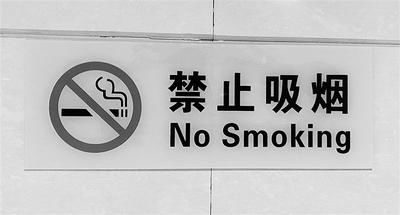
Yandu Rong Media Reporter Tan Yanan
Mr. Zhang, 48, has been smoking for 30 years. He quit smoking for the first time 3 years ago. “I made up my mind to quit smoking at that time.” Mr. Zhang said, he persisted for a while, during which he had some discomforts such as listlessness, tantrums, difficulty falling asleep, and had to give up halfway.
Multi-faceted intervention
Help me quit smoking successfully
“Is there a better way to help me quit smoking successfully and avoid giving up halfway?” In response to Mr. Zhang’s question, Wang Zhicheng, director of the Department of Pulmonary Diseases of Shijiazhuang Hospital of Traditional Chinese Medicine, said that quitting smoking is not a simple matter. The main addictive substance in tobacco is nicotine, commonly known as nicotine, which is an organic compound containing N-choline receptor agonists. Long-term use of tobacco (nicotine) can cause addiction or dependence.
According to Wang Zhicheng, some people will experience a series of withdrawal symptoms during quitting smoking, such as restlessness, insomnia, inability to concentrate, emotional instability, etc., and the more addicted to smoking, the more obvious the symptoms. As a result, some people experience relapse during quitting smoking.
Wang Zhicheng said that smoking cessation often takes a long period of time. You can consult a smoking cessation clinic. Doctors will intervene in a timely manner from lifestyle habits, psychological counseling, drug treatment and other aspects to help improve the success rate of smoking cessation.
Smoking has become a risk factor for many diseases
It is an indisputable fact that smoking is harmful to health. For example, long-term smoking has a great impact on the respiratory system, which can lead to the occurrence of chronic obstructive pulmonary disease, bronchial asthma, lung cancer and other diseases.
Wang Zhicheng said that smoking is also very harmful to young people’s health. For example, the effect on bone growth and development, smoking can inhibit the absorption of calcium, leading to calcium deficiency and osteoporosis; the effect on the nervous system, the nicotine in tobacco is toxic to the brain nerves, it will make students memory loss, lack of energy, Decreased academic performance; affecting the respiratory system, smoking can damage the respiratory tract and cause repeated inflammation, increase respiratory resistance, decrease lung capacity, and affect the development of the thorax, thereby affecting the overall development.
The harm of smoking is multi-faceted. Wang Zhicheng reminded that everyone must have a comprehensive understanding of the harm of smoking.
Don’t underestimate the harm of second-hand smoke
Wang Zhicheng said that smoking will not only have adverse effects on the smokers themselves, but also harm the non-smokers around them.
Secondhand smoke, also known as environmental tobacco smoke, includes mainstream smoke exhaled by smokers, as well as sidestream smoke that comes directly from cigarettes, cigars, or pipes, which is exhaled by smokers A colloquial term for the smoke of the gas and the cigarette itself when it burns. Wang Zhicheng pointed out that secondhand smoke contains a variety of harmful substances, which can damage blood vessels and interfere with blood circulation, thereby increasing the risk of heart disease; aggravating respiratory diseases such as asthma and chronic obstructive pulmonary disease.
In addition to second-hand smoke floating in the air, the harm of third-hand smoke should not be underestimated. Wang Zhicheng pointed out that in life, some people think that smoking in front of others will not have adverse effects on the health of others. However, the toxic substances contained in tobacco smoke will remain on the smoker’s hair, skin, clothing and other surfaces during smoking. Through close contact, these toxic substances will penetrate into the human body through the respiratory tract, skin and mucous membranes, etc., and will also endanger human health. In this regard, Wang Zhicheng suggested that non-smokers should also safeguard their health rights, encourage and help smokers to quit smoking, and jointly create a smoke-free environment.